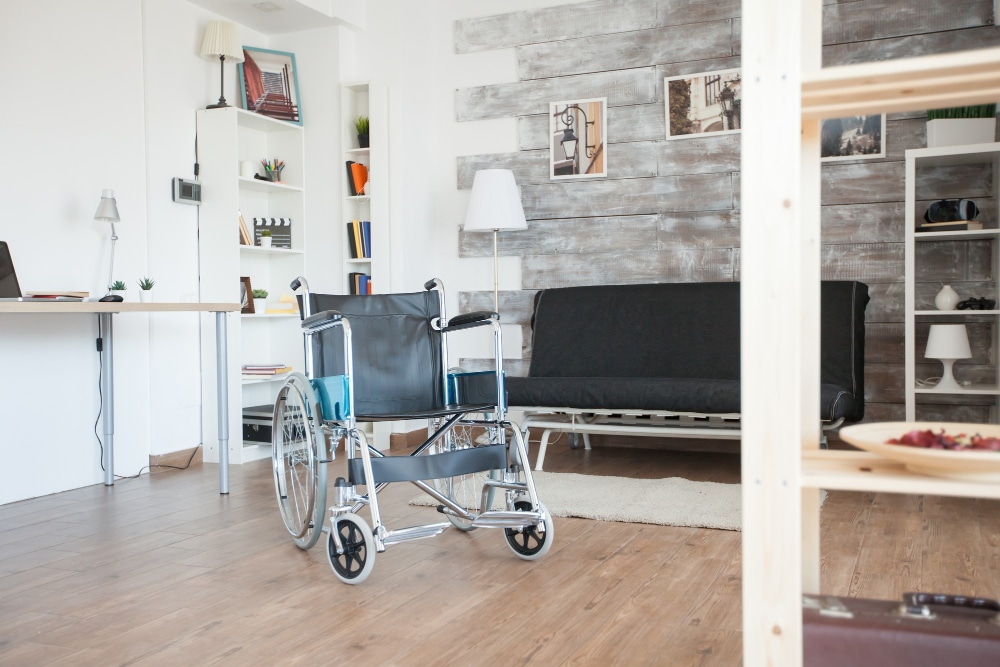So you and your older adult have sat down, discussed the options, and decided that communal care is the best option to treat what they’re struggling with. That’s a decision that deserves some commendation in itself. As the stigma associated with facilities like nursing homes (however unearned) makes it a difficult choice. For older adults that can no longer perform functions by themselves.

However, as opposed to at-home care where you are the primary caretaker and can help your older adult in all the ways they may need it. You are leaving them in the care of someone else. Statistics suggest that these third-party caregivers are not always worthy of your trust. According to the World Health Organization, 2 in 3 nursing home employees have confessed to exercising their power over their patients in an abusive way; and frighteningly, that’s just what we know about, as with other forms of abuse, elder abuse is dramatically underreported.
While you can’t eliminate the possibility of your older adult encountering abusive personnel or harmful hospital cultures entirely. You can do your part to know the signs and symptoms of the different kinds of elder abuse. That way, when those signs do begin to manifest themselves. You can respond appropriately in the moment and get your older adult to a safer place. So without further ado, here are a list of the different forms of elder abuse and common signs associated with each.
Physical Abuse
By far, when people think elder abuse, physical abuse is the one that pops into their heads most often. Physical abuse is the use of physical force against an elderly person by someone in a position of power over them, and can manifest itself in broken possessions, strange bruises and repeated “accidents,” or sprained/broken bones. If your older adult seems reluctant to see a doctor. You notice a pattern of the same accidents occurring over and over. Or you notice that the facility has been taking them to different emergency rooms with each subsequent “accident”. These may be signs your older adult is being physically abused.
Sexual Abuse
This form of abuse needs no explanation, and while any older adult can be targeted. Older adults that do not have the ability to defend themselves (such as patients with dementia or Alzheimers) are more likely to be targeted. If you notice that your older adult has bruises or bleeding in sensitive areas. Notice their undergarments are torn or bloody or notice that your older adult is showing signs of suicidal ideation, investigate immediately. Even better, call someone who can seek justice on your loved one’s behalf. A lawyer who has dealt with these kinds of cases before.
Financial Abuse
This one can be tricky to catch, but as a general rule of thumb, if your older adult is not aware of the state of their finances or strange charges keep popping up on their account, an investigation may be warranted. Sometimes opportunists see older adults as easy targets and so attempt to get undue power over their assets and finances. If your older adult mentions financial deals that have no paperwork backing them. Has valuable possessions missing or has written checks with unbelievable amounts of money to their caretaker. They may be the victim of financial manipulation.
Emotional Abuse or Neglect
Emotional abuse is also difficult to catch unless you’re there with your older adult in the moment. Leaving no physical signs. However, if you notice your older adult has become withdrawn, moody, or their eating and sleeping habits have changed, they may be suffering from emotional abuse. Things like name-calling, restricting older adults’ access to facilities, threatening behavior, and even isolating your loved one from friends and family all constitute emotional abuse.
Neglect, on the other hand, is when a facility doesn’t do their part to take care of your older adult. If you notice bedsores, declining hygiene, repeated accidents, or anything that indicates that the facility isn’t treating your older adult correctly. Don’t hesitate to seek legal recompense.
Staying Vigilant
While this is not an exhaustive list of the symptoms of elder abuse, or even the various forms it can take, if you suspect anything is going on that shouldn’t be. Don’t hesitate to investigate.
